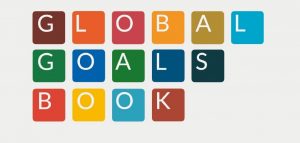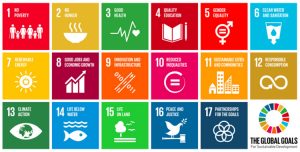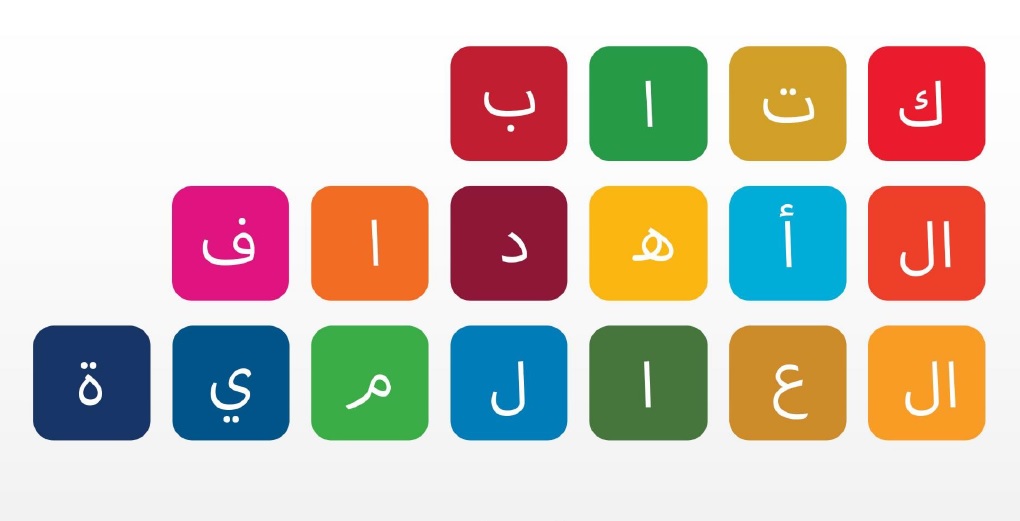São Paulo – Last week saw the release of The Global Goals Book, a freely downloadable e-book containing sample lessons by teachers from different countries on the Sustainable Development Goals (SDGs) of the United Nations (UN). The book is available in Arabic (pictured above), English and Italian, and a Portuguese version will be out soon.
The book contains the work of nine authors, including Brazil’s Francisco Tupy, with editing done by Belgium’s Koen Timmers and the USA’s Jennifer Williams. Teachers from Australia, New Zealand and Ireland are also involved, as well as Souad Belcaid, from Morocco.

The e-book features sample lessons on the SDGs from the UN’s 2030 Agenda. “The focus is on teachers, so that whenever they need these contents, they will have examples of methodologies to work with, instead of being left in the dark,” told ANBA.
According to the introduction, this group of educators believes education is the solution to the world’s problems. “By 2030, the youth of today will be economically active adults. They will be producing things and making decisions, so the idea is to relay the contents of the SDGs to them, to steer students’ attentions towards these important subjects, and to empower them,” said Tupy.
He also said the sample lessons are templates designed to inspire teachers to come up with their own class plans. “The class plans are complete and can be followed step-by-step, or adapted to different realities,” he explained.
The 17 Sustainable Development Goals are: 1) No Poverty; 2) Zero Hunger; 3) Good Health and Well-being; 4) Quality Education; 5) Gender Equality; 6) Clean Water and Sanitation; 7) Affordable and Clean Energy; 8) Decent Work and Economic Growth; 9) Industry, Innovation and Infrastructure; 10) Reduced Inequality; 11) Sustainable Cities and Communities; 12) Responsible Consumption and Production; 13) Climate Action; 14) Life Below Water; 15) Life on Land; 16) Peace and Justice Strong Institutions; 17) Partnerships to achieve the goals.

The book is usable by teachers of various subjects. “The topics are cross-disciplinary, allowing teachers of different subjects to work together or by themselves on multidisciplinary projects. Each teacher will approach the subjects differently,” he explained.
Tupy wrote the eighth chapter, which suggests lessons using the Microsoft computer game Minecraft. “All of the lessons suggested in the book can include extensions of Minecraft and Lego,” said Tupy. Schools are required to install the game in their computers.
One lesson suggests simulating situations and characters to work with communication within Minecraft’s virtual environment. “It’s not just about building; it’s also about using this virtual space, with text-based communication, for problem-solving,” he said.
Tupy is a Brazilian-born, Arab-descendant teacher with a degree in Geography, a master’s in Game Design and a doctorate degree in Communication Applied to Games from the School of Communication and Arts (ECA) of the University of São Paulo (USP). For his doctorate thesis he delved into Minecraft applied to communication.
Innovations Lab
Aside from the free e-book, an international website has been created: Innovations Lab is a network for teachers from around the world to divulge their work in, engage in networking and translate contents into other languages.
The project also includes the Innovation Lab Schools, 12 brick-and-mortar schools around the world – including one in Rio de Janeiro and one in Morocco – whose goal is to promote and share knowledge and encourage critical thinking. By 2020, the project is expected to reach 10,000 teachers and a million students.
The book relies on support from the Jane Goodall Institute, a global wildlife and environment conservation organization based in Virginia, USA, with offices in approximately 30 countries. The institute was established in 1977 by British primatologist Jane Goodall.
Translated by Gabriel Pomerancblum




